BC History Digitization Program: This grant supports funding for private or public organizations seeking to digitize historical British Columbia materials. Interest applicants can submit Early Notice of Intent to Apply proposals in September, which allows for the request of additional support during the grant application process, or interested applicants can submit their final proposals in December. This grant is sponsored by the University of British Columbia Irving K. Barber Learning Centre.
Digitizing Hidden Special Collections and Archives: Amplifying Unheard Voices: This grant supports the digitization of rare and unique content held by collecting organizations in the U.S. or Canada. Administered by the Council on Library and Information Resources (CLIR) and supported by funding from the Andrew W. Mellon Foundation, this grant involves two application stages. The program has published recorded webinars and a FAQ to support interested applicants.
Indigitization: This program offers funding and training resources to Indigenous communities seeking to archive or digitize cultural materials. Funding opportunities include subsidies for traveling to program workshops, support for digitizing audio cassettes, general funding for digitization and archival projects, and support for the digitization of media related to the preservation and revitalization of Indigenous languages. Indigitization is a collaborative program between multiple organizations, including Irving K. Barber Learning Centre at the University of British Columbia (UBC), Northern BC Archives and Special Collections at the University of Northern British Columbia, Museum of Anthropology at UBC, Centre for Teaching, Learning, and Technology at UBC, X̱wi7x̱wa Library, UBC iSchool, and Center for Digital Scholarship & Curation at Washington State University.
Library and Archives Canada Documentary Heritage Communities Program: This grant, for which a call for proposals is announced every fall, supports projects that are seeking to “increase access to, and awareness of their [documentary] holdings,” or “increase their capacity to keep and preserve Canada’s documentary heritage.” Interested applicants can submit requests for up to $60,000 for one-year funding.
Social Sciences and Humanities Research Council (SSHRC): A governmental agency that supports funding for a variety of initiatives related to social sciences and humanities research or related activities. There are multiple grants made available throughout the year.
Digitizing Hidden Special Collections and Archives: Amplifying Unheard Voices: A grant to support the digitization of rare and unique content held by collecting organizations in the U.S. or Canada. Administered by the Council on Library and Information Resources (CLIR) and supported by funding from the Andrew W. Mellon Foundation, this grant involves two application stages. The program has published recorded webinars and a FAQ to support interested applicants.
National Endowment for the Humanities (NEH): Practitioners seeking grants for editing and recovery work may apply to grants that are part of the NEH’s program for Scholarly Editions and Scholarly Translations. Through this grant program, applicants can request up to $100,000 in outright funds or up to $150,000 in matching funds per year. Final submission deadlines are usually in November, with funding to begin in the fall of the following year. Applicants may opt to submit a draft for comment before the final submission deadline.
National Historical Publications and Records Commission (NHPRC): Practitioners seeking grants for editing and recovery work may apply to grants that are part of the NHRPC’s program for publishing historical records, particularly the Publishing Historical Records in Collaborative Digital Editions grant. Applicants can request up to $125,000 in financial support per year. Please note that the NHPRC anticipates that applicants can cost-share (i.e. provide additional funds) in the amount of at least 25% of the total support awarded by the NHPRC. Final submission deadlines are usually in May and October, with funding for those respective deadlines to begin the following year in January or July. Applicants may opt to submit a draft for comment before the final submission deadline.
Public and Private Foundations: There are numerous private and public foundations interested in supporting editing and recovery work. Foundations may be interested in supporting a project because of its focus of research, commitment to public engagement, geographic location, or offerings of learning or employment opportunities for students of various ages. Practitioners can search the subscription-based Foundation Directory to identify potential funders, or they can look into the funding of other editing or recovery projects for insight into foundations that have a history of funding this type of work.
State Historical Records Advisory Groups (SHRABs), State Humanities Councils, and State Historical Societies: Many states and territories have humanities councils, historical records advisory groups, and/or historical societies that offer small grants to support project planning or or other project activities. Finding these grants may require digging through the websites for your state’s humanities council or historical records advisory group. A directory for state archives (who would be help you get in touch with your state’s historical records advisory group) can be found here; a directory for state humanities councils can be found here; and a directory for state historical societies can be found here. Practitioners can also search the NHPRC’s announcements of successful grant award recipients to see if any of their state-based organizations have won funds to support re-granting programs, as these programs re-issue the funds to support projects in their planning stages or during other phases of activity. Information about grants issued to your state can be found here.
Need additional support in finding grants for your project? We’re happy to help! Contact eLabs@virginia.edu and we’ll work together to brainstorm some ideas for your project.


